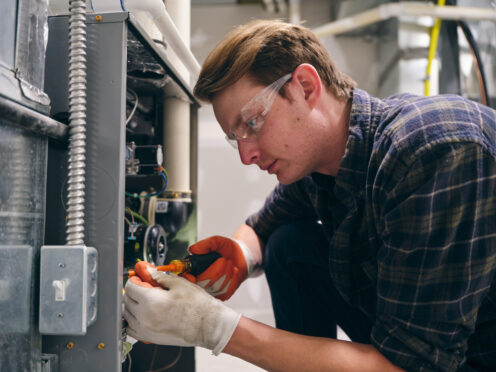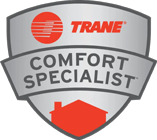
NATE stands for North American Technical Excellence. It’s a nonprofit trade organization that sets standards for the HVAC industry. That includes technicians who specialize in residential and commercial heating, ventilation, air conditioning, and refrigeration. The organization also educates, trains, coaches, and certifies technicians. Statistics show that technicians with NATE certification remain in the industry longer and are more likely to be successful in their careers.
1. Certification of an HVAC Company
Achieving and maintaining NATE certification is neither simple nor inexpensive. Despite that, most HVAC contractors prefer NATE-certified technicians. Many contractors are even willing to help new hires achieve certification as a part of their onboarding. The investment is well worth it. It gives customers peace of mind. NATE certification results in lower turnover and technician-related losses. It can facilitate achieving and maintaining other certifications. Certification can also make it easier to get more robust coverage and insurance premium discounts.
2. Many Manufacturers Require NATE Certification
Manufacturers don’t have direct control over who installs and services their systems. They do often exert some control by incentivizing you to choose certain technicians. One way they do this is through tiered warranties. If you purchase a Trane system, for instance, you won’t get the best warranty coverage unless a Trane Comfort Specialist installs it. Likewise, continued coverage requires annual maintenance and may require a technician with NATE certification to perform it.
3. Ongoing Training
Another important and exciting aspect of NATE is that technicians must renew their certifications. There are many other HVAC certifications that you earn once and hold forever. NATE certification is good for two years, at which point, you must renew it. Technicians don’t have to do all the training again. What they must do is training and testing related to all the new standards and technologies since their last certification.
4. Knowledge and Experience
In many states, the owner-operator of an HVAC company requires licensing, but the individual technicians don’t. Even in states that do require it, NATE tends to go beyond those requirements. Even apprentices can get entry-level certifications. Experienced technicians can earn the primary professional certification. It indicates expansive knowledge of old and new technologies and best practices. Master-level technicians can also earn specialized certifications. All these certifications give you confidence that the advice you’re receiving is the best for you and your home.
5. All Work Completed to NATE and Manufacturer Standards
NATE-certified technicians must complete all work to NATE standards. Those standards are typically higher than local building codes and manufacturer warranty requirements. NATE demands meeting all manufacturer installation, maintenance, and repair requirements as well. Doing so protects that consumer by maximizing and validating warranties.
6. High Energy Efficiency
A NATE education emphasizes energy efficiency as well. NATE standards account for the energy efficiency standards set forth by the Department of Energy and Environmental Protection Agency. When a NATE-certified technician installs, maintains, or repairs HVAC equipment, you have confidence that they’ve maximized energy efficiency. Better efficiency results in a smaller household carbon footprint. It translates into lower heating and cooling costs. High efficiency also results in longer-term savings through fewer repairs and longer equipment lifespans.
7. Fewer Callbacks and Warranty Returns
NATE maintains industry statistics. One of the things it’s most proud of as an organization is the track record of its technicians. NATE-certified technicians have fewer callbacks. That’s where a technician must return to a job site because there’s a technical issue or the customer is unhappy. NATE-certified technicians also result in fewer warranty returns. That’s where the manufacturer’s warranty must cover either repair or replacement of the equipment.
8. Outstanding Customer Service and Care
NATE does not limit its standards to technical aspects. It also emphasizes customer service and care. Another reason companies love NATE-certified technicians is that they learn how to earn customer satisfaction and loyalty. The NATE trainers coach them on this aspect of the job. They spend a substantial amount of time on it just as they do with in-the-field technical training.
Would You Like to Hire a NATE-Certified Technician in San Antonio?
MD Air Conditioning & Heating serves residential and commercial clients through San Antonio, TX, and the surrounding areas, and we’re proud to employ NATE-certified technicians. Our technicians install, maintain, and repair furnaces, heat pumps, air conditioners, and ductless mini-splits. We offer same-day service, and our maintenance plan can save you money on tune-ups and repairs. Our team performs indoor air quality (IAQ) assessments. We can also help you improve your IAQ with air purifiers, UV lights, dehumidifiers, and humidifiers. Schedule service online or call us today to book your appointment.
Tags: HVAC Services, NATE Certified
